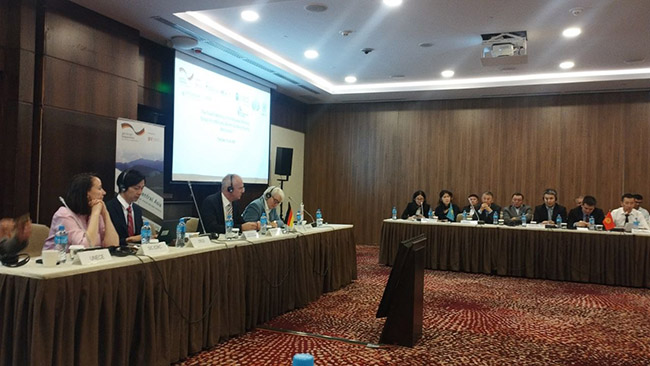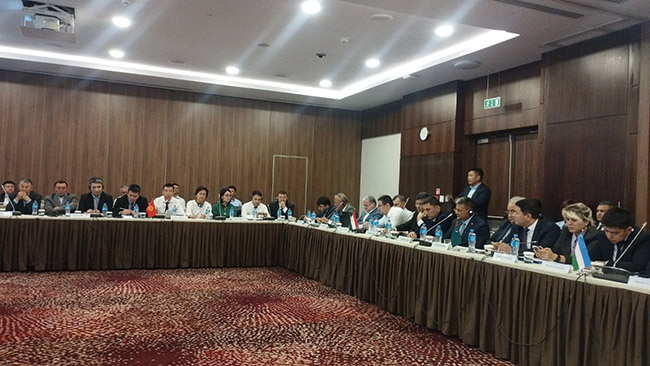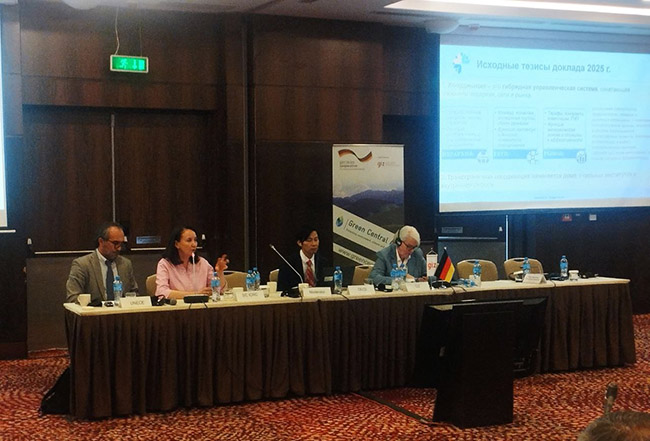No. 63 (587) July 2025
FOURTH MEETING OF THE WORKING GROUP ON MUTUALLY BENEFICIAL WATER-ENERGY MECHANISM
The Fourth Meeting of the Regional Working Group on developing a mutually beneficial water-energy mechanism in Central Asia was held in Astana on July 10, 2025. The event was organized as part of the Green Central Asia Initiative and the IKI project "Regional mechanisms for the low-carbon, climate-resilient transformation of the energy-water-land Nexus in Central Asia" jointly implemented by OECD, SIC ICWC, and UNECE. The Regional Working Group aims to promote dialogue among Central Asian countries on opportunities for further cooperation to ensure more efficient and sustainable management of water and energy resources.

This fourth meeting focused on facilitating discussions and gathering expert opinions to further strengthen expert capacity and connections, collect new evidence and ideas to support cooperation dialogue between the water and energy sectors, and develop and agree on policy briefs for policymakers. The event was attended by representatives of foreign ministries and relevant agencies of Central Asian countries, EC IFAS, SIC ICWC, as well as international organizations including GIZ, UNECE, the World Bank, ADB, the Swiss Agency for Development, and others.

Key discussion topics included:
- Modeling joint water-energy management;
- Environmental sustainability in the context of water-energy cooperation;
- Current developments in Afghanistan and their impact on the region;
- Opportunities for the improvement of institutional mechanisms to deepen cooperation between the water and energy sectors.
The SIC ICWC delegation, comprising Dinara Ziganshina, Anatoliy Sorokin, and Aurika Galustyan, participated in the meeting
SIC ICWC Director Dr. Ziganshina moderated key sessions and presented an analytical report on the prospects for institutional strengthening of water-energy cooperation. Her presentation focused on the concept of a hybrid management model combining elements of hierarchy, network structures, and market instruments.

Mr. Sorokin delivered a presentation titled "Modeling framework for assessing benefits of regional water-energy cooperation and conclusions from capacity building activities." This presentation highlighted the results of the IKI project "Regional mechanisms for the low-carbon, climate-resilient transformation of the energy-water-land Nexus in Central Asia."
Ms. Galustyan in her presentation "Key findings from current research on Amu Darya aquatic ecosystems and climate-resilient infrastructure in Syr Darya," outlined preliminary results from two areas of work- Joint work to preserve ecosystems of the Amu Darya River Basin, including zones of flow formation and dispersion and Infrastructure issues, resilience to climate change (Nexus approach) in the Syr Darya basin. These studies are carried out jointly with the region’s national experts as part of the GIZ project " Studies on priority issues in the field of water, energy and environment in the Amu Darya and Syr Darya basins."
In conclusion, the main directions for further activities of the Regional Working Group were defined.